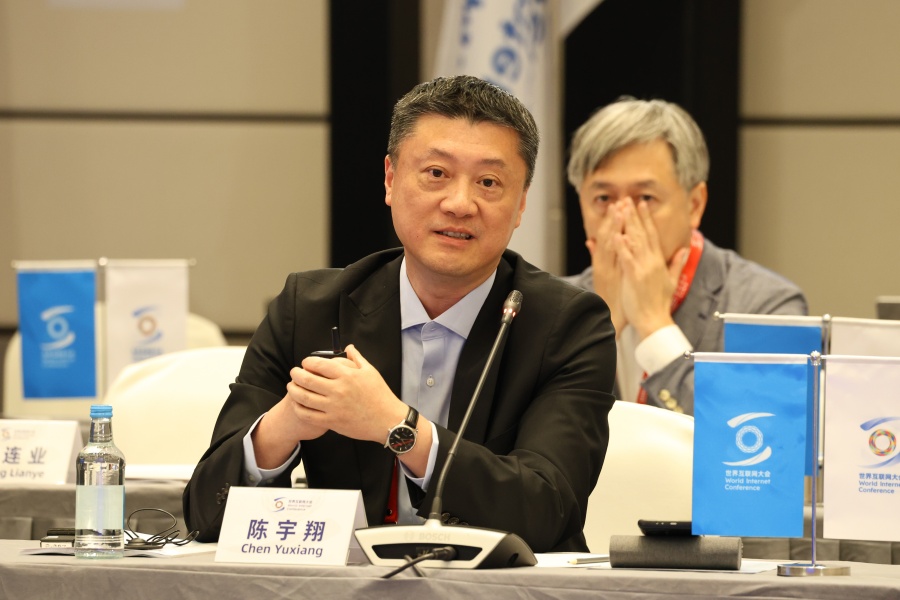
- Home
- Media Center
-
Events
- Wuzhen Summit
- Regional Forums
- Practice Cases of Jointly Building a Community with a Shared Future in Cyberspace
- World Internet Conference Awards for Pioneering Science and Technology
- The Light of Internet Expo
- Straight to Wuzhen Competition
- Global Youth Leadership Program
- WIC Distinguished Contribution Award
- Membership
- Research & Cooperation
- Digital Academy
-
Reports
- Collection of cases on Jointly Building a Community with a Shared Future in Cyberspace
- Collection of Shortlisted Achievements of World Internet Conference Awards for Pioneering Science and Technology
- Reports on Artificial Intelligence
- Reports on Cross—Border E—Commerce
- Reports on Data
- Outcomes of Think Tank Cooperation Program
- Series on Sovereignty in Cyberspace Theory and Practice
- Other Achievements
- About WIC
- 中文 | EN

Workshop on AI Governance and Sustainable Development: for Good and for All|Chen Yuxiang: AI not just to empower industries but bridge digital divide

Chen Yuxiang, a distinguished engineer from IBM, speaks at the "AI Governance and Sustainable Development: for Good and for All" Workshop during the World Internet Conference Asia-Pacific Summit in Hong Kong on April 14. [Photo/wicinternet.org]
"Artificial intelligence (AI) should not only empower various industries, but also extend its reach to remote areas to bridge the digital divide", said Chen Yuxiang, a distinguished engineer from IBM, at the "AI Governance and Sustainable Development: for Good and for All" Workshop during the 2025 World Internet Conference Asia-Pacific Summit in Hong Kong on April 14.
According to Chen, AI inclusiveness can be viewed from the perspectives of technology providers, consumers (individuals and enterprises) and regulators (governments and third-party industry regulators).
Challenges in AI development such as expensive infrastructure, data breach risks and high energy consumption have become barriers for small and medium-sized enterprises (SMEs), he said.
Chen introduced IBM's AI product Watson, which has a variety of models, both local and on cloud, with their core parts being open-source. It is conducive for industries, especially SMEs, to start with small models, taking into consideration deployment needs for models of different scales, he added.
Regarding AI's reach to remote areas, "it is essentially a matter of talent cultivation," he said. IBM has promoted the development of online colleges by cooperating with government agencies around the world as part of its efforts in global AI talent cultivation, he noted.
He also pointed out that current AI governance remains mainly as initiatives. Enterprises should classify the challenges in AI governance, build an indicator system, and equip it with testing tools and operational methods, to contribute to AI development, he said.

The World Internet Conference (WIC) was established as an international organization on July 12, 2022, headquartered in Beijing, China. It was jointly initiated by Global System for Mobile Communication Association (GSMA), National Computer Network Emergency Response Technical Team/Coordination Center of China (CNCERT), China Internet Network Information Center (CNNIC), Alibaba Group, Tencent, and Zhijiang Lab.





